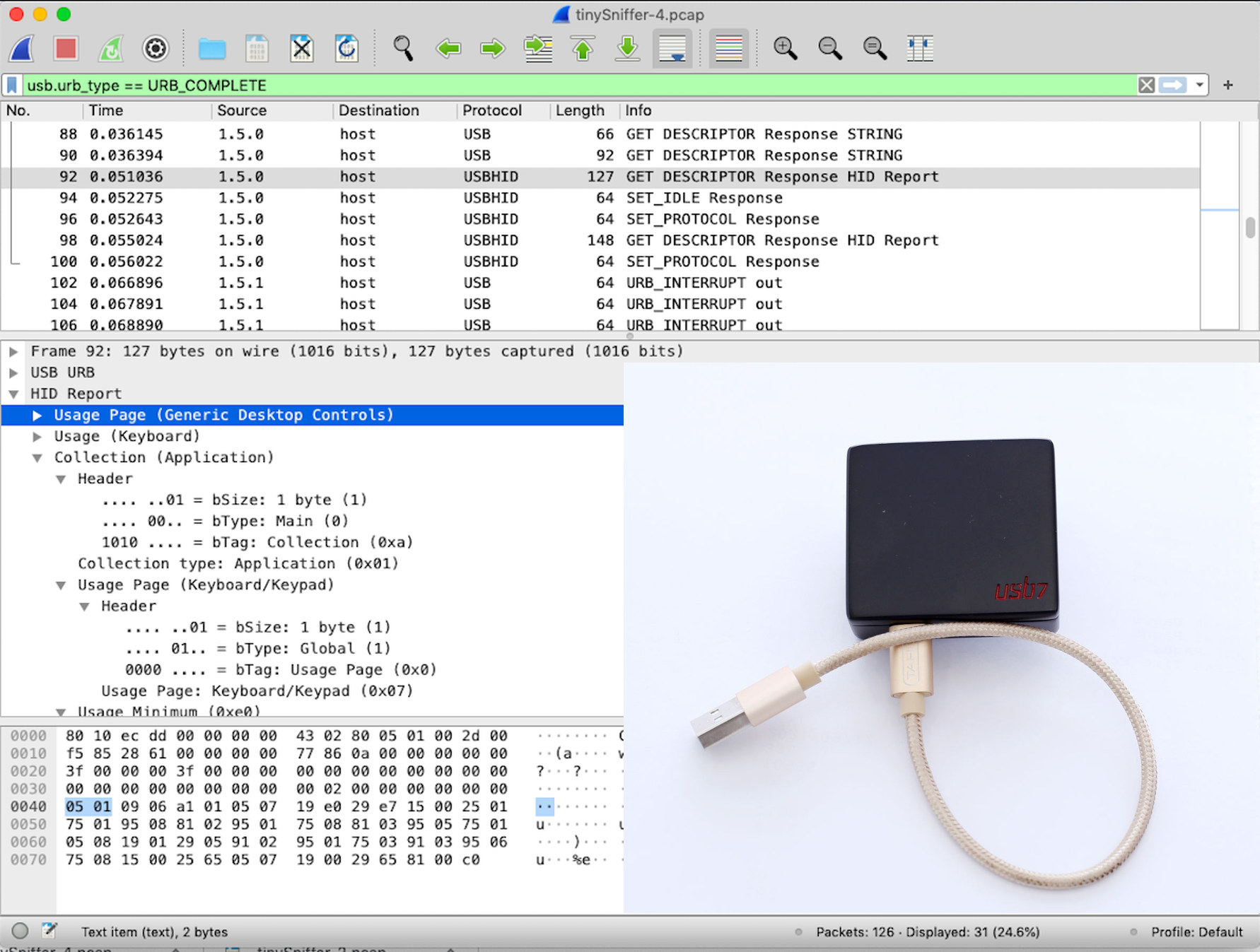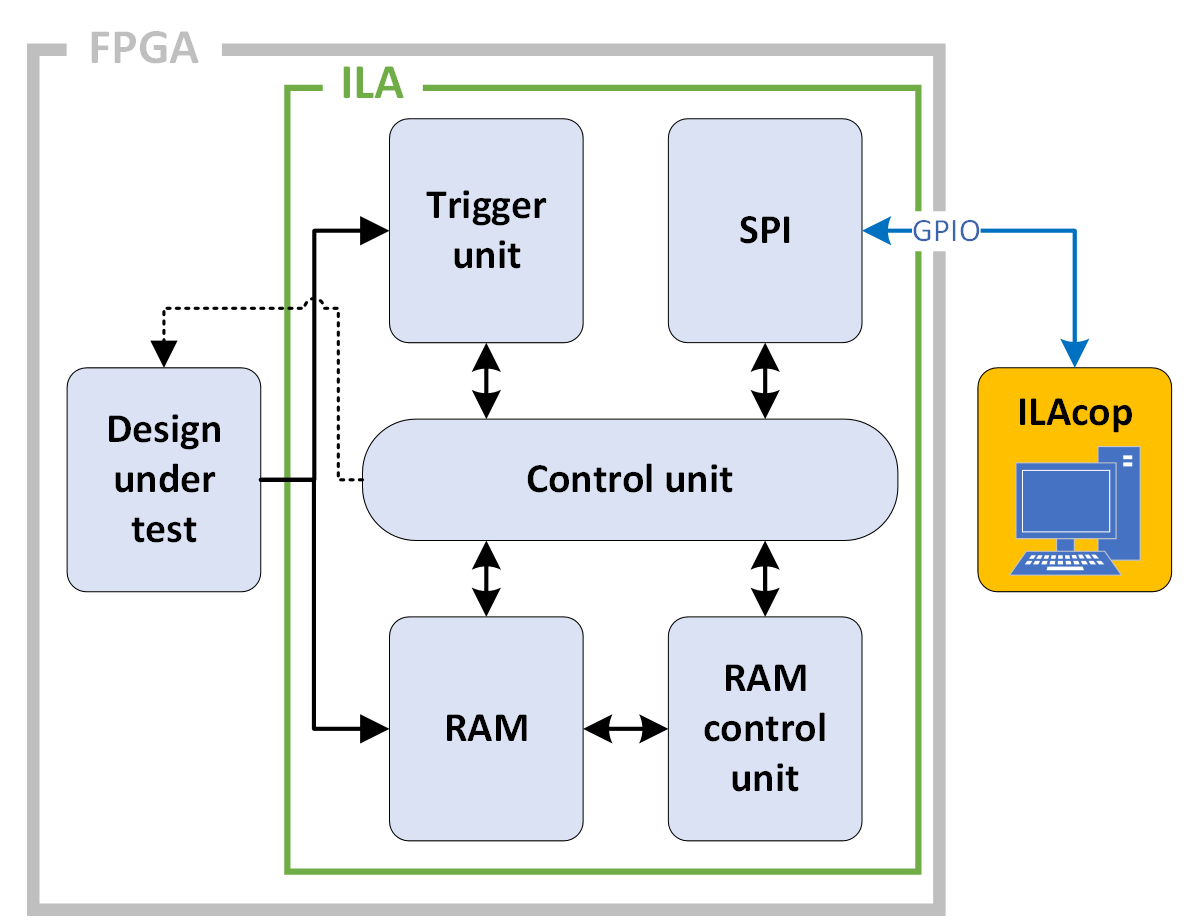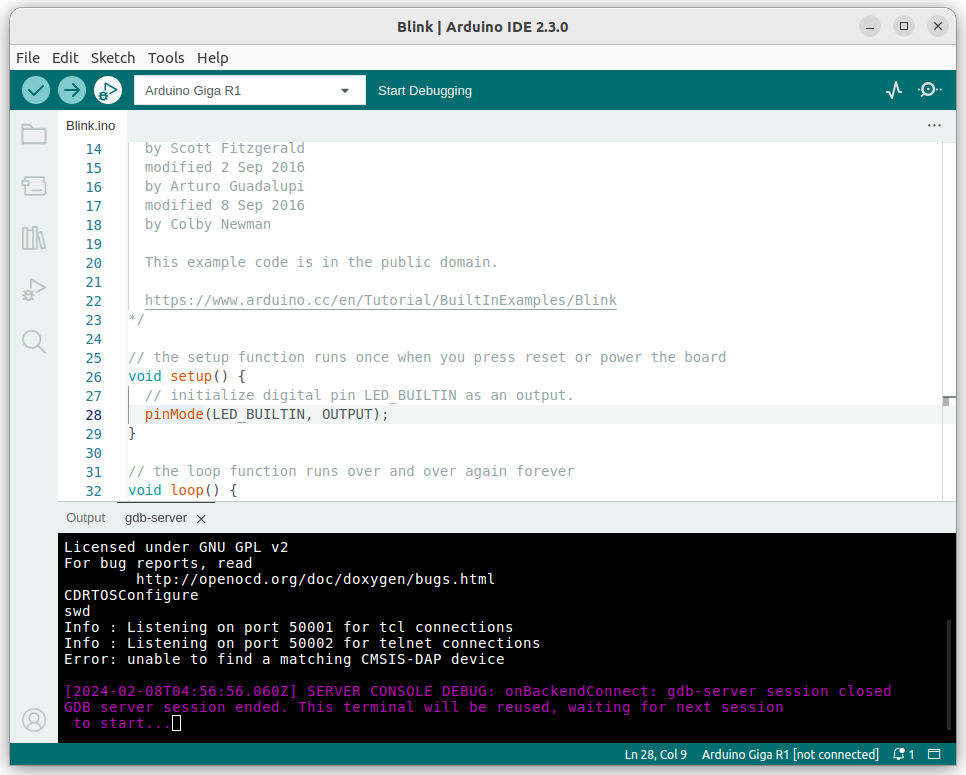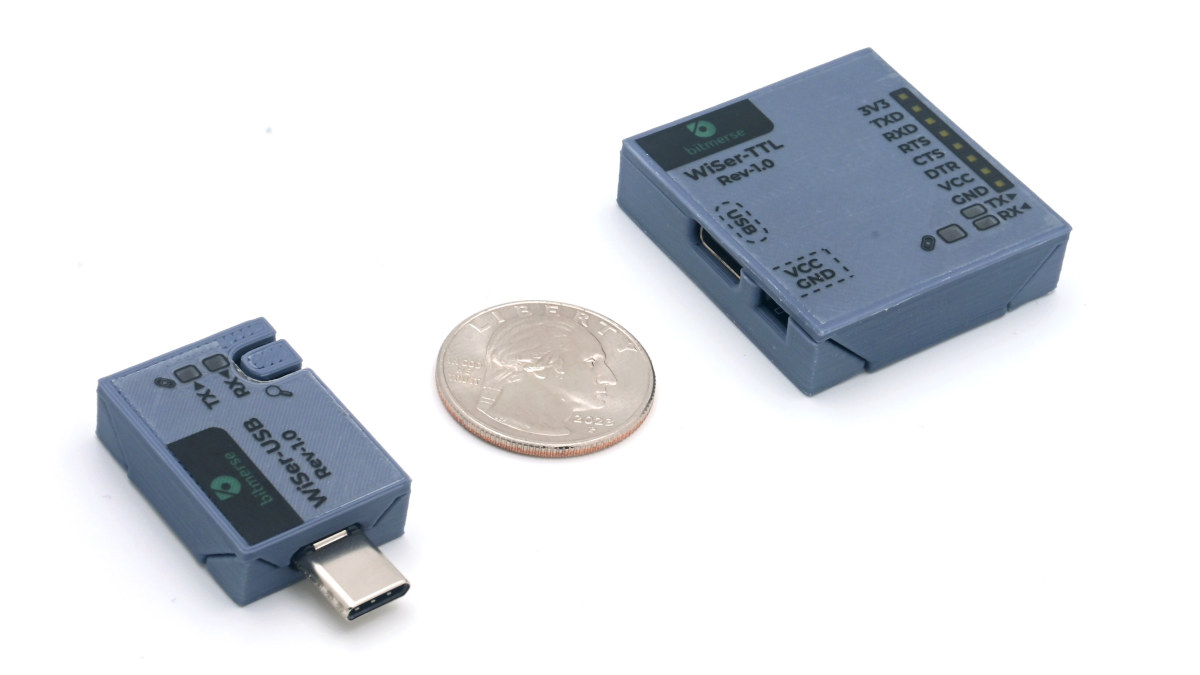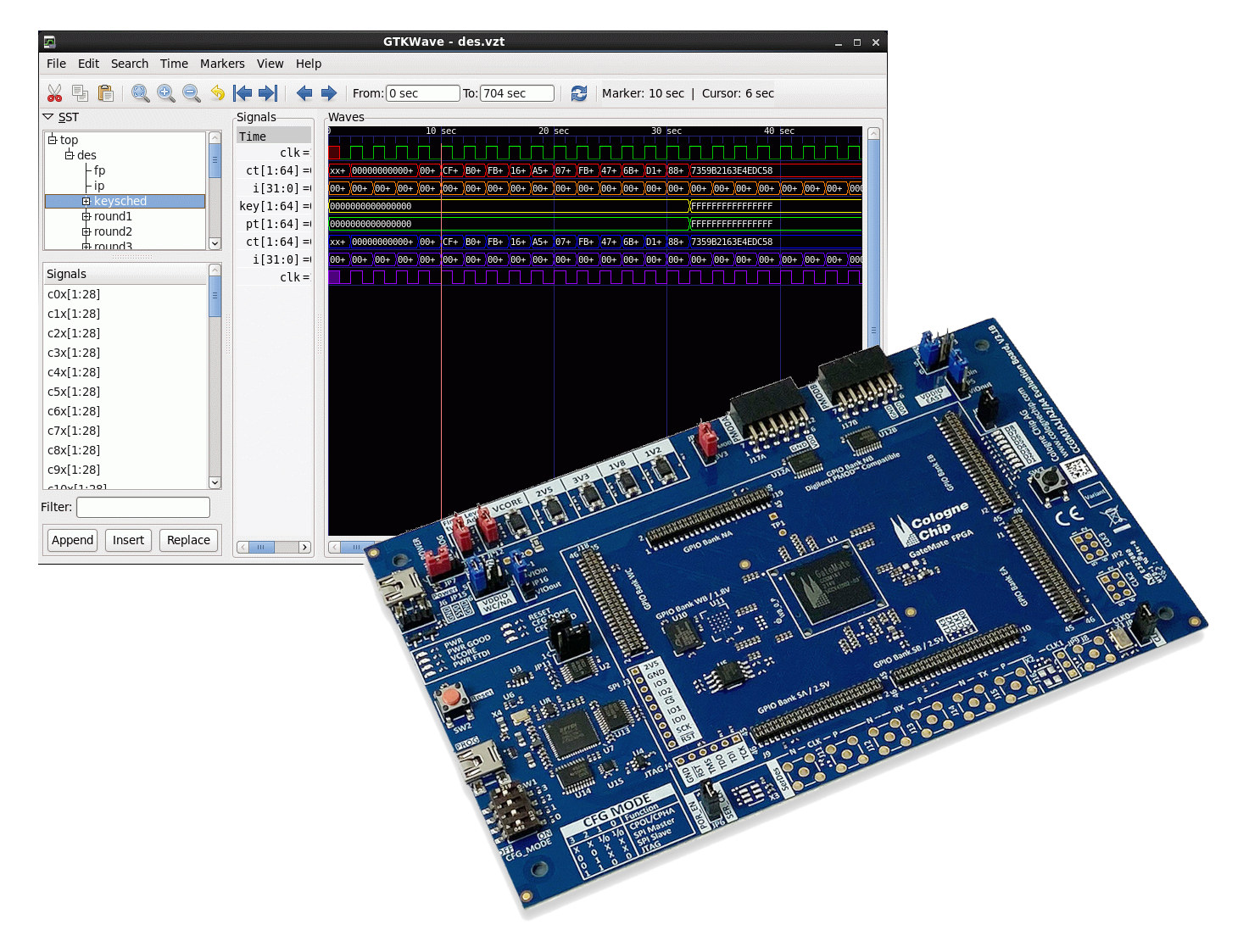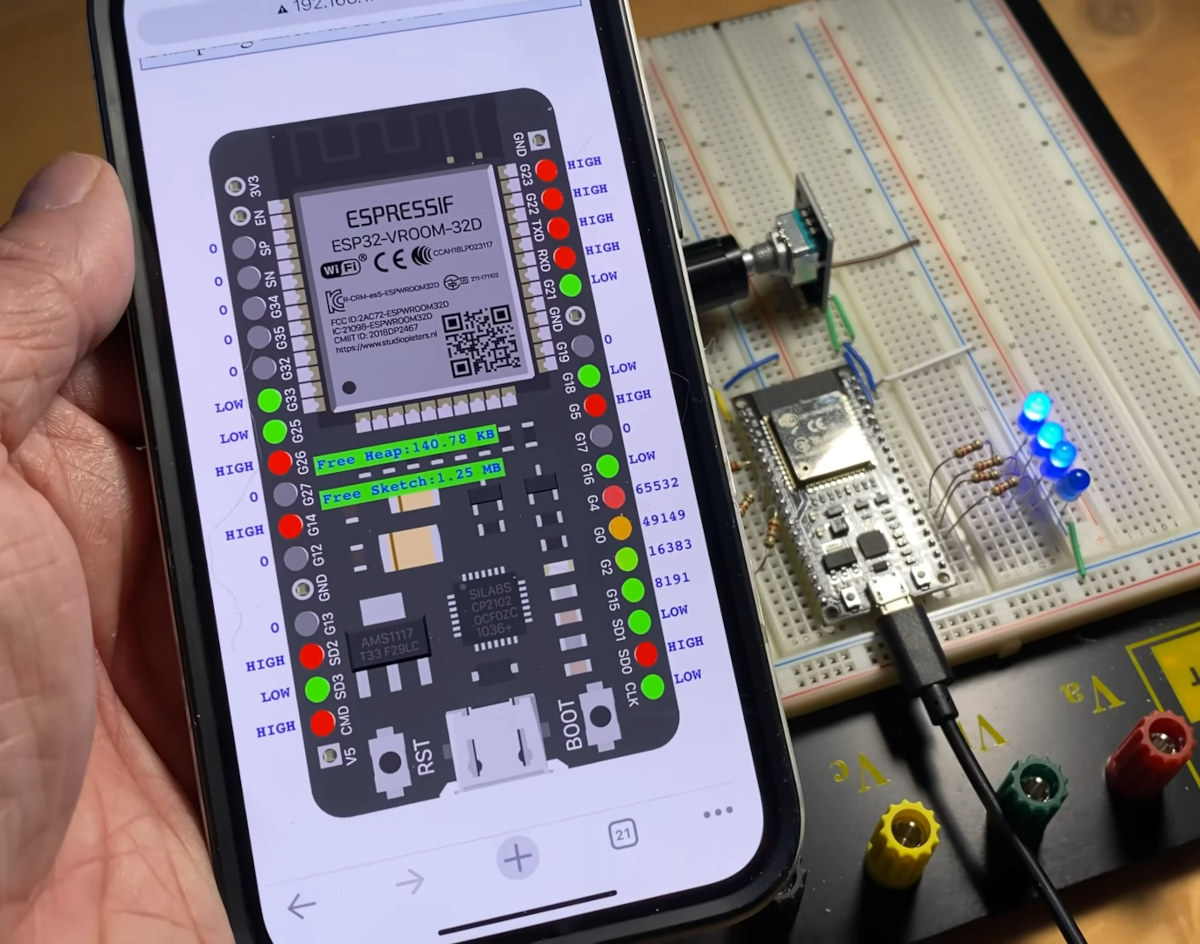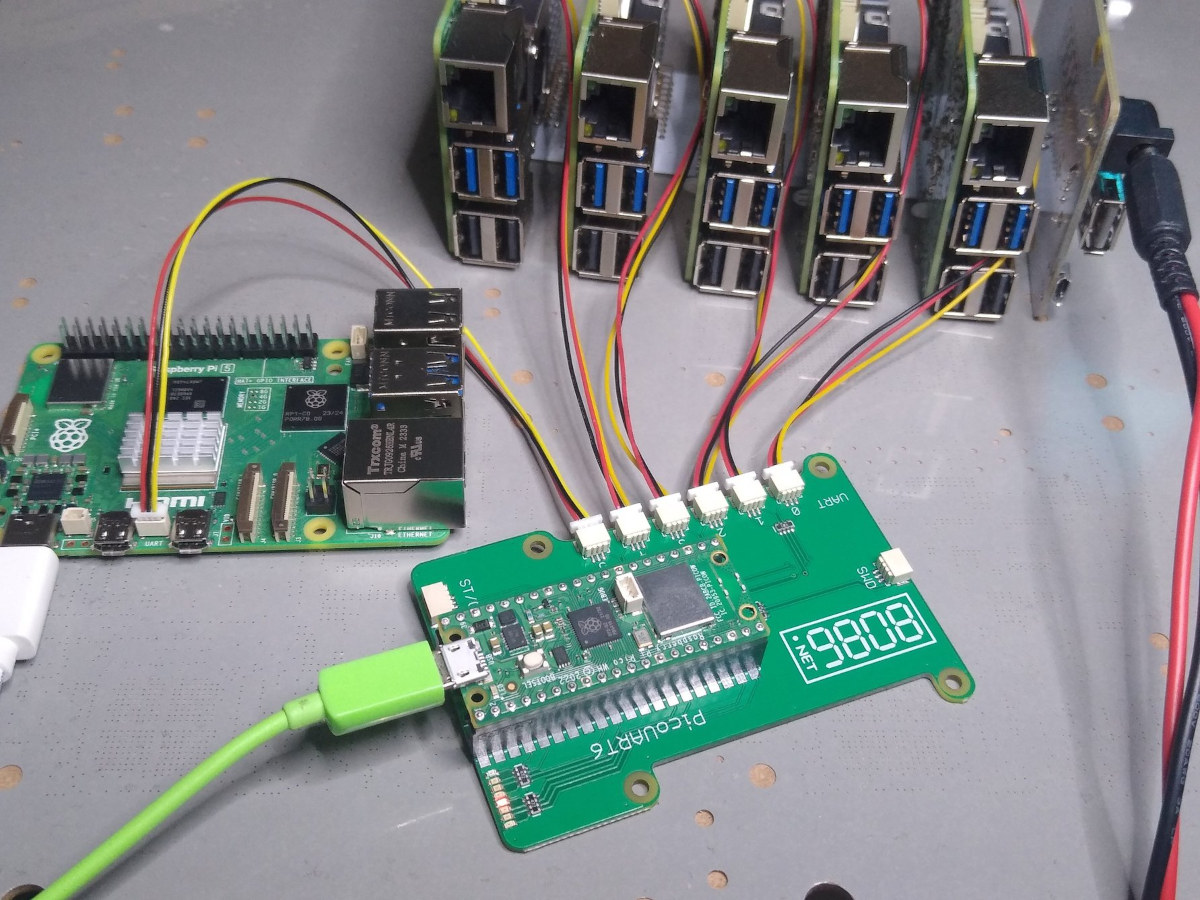TinySniffer is a USB sniffer based on the Allwinner H3-powered NanoPi Neo Air SBC, designed to capture USB 1.x and 2.0 packets remotely, and whose captured data is compatible with the popular Wireshark packet analyzer tool. Wireshark can already be used to capture USB packets on its own and I reverse-engineered a USB capture video solution that way in the past, but this method has some limitations, for instance, it does not capture some low-level USB packets, in which case a hardware USB sniffer like Total Phase Beagle USB, the PhyWhisperer USB, or the tinySniffer is required. The micro USB OTG port of the NanoPi NEO Air SBC is connected to the host computer and the company added a USB 2.0 Type-A port connected to the USB interface on the GPIO header to connect a device under test such as a USB keyboard, a USB Ethernet dongle, a USB printer, […]
GateMate Integrated Logic Analyzer (ILA) deep dive
CNXSoft: This is a guest article by Dave Fohrn, Embedded Software Engineer at Cologne Chip AG, that goes into detail about the company’s open-source integrated logic analyzer (ILA) for GateMate FPGA chips. A field-programmable gate array (FPGA) is a highly flexible integrated circuit in which complex logic circuits can be configured. They are often used as custom computing units in digital circuits because of their ability to process data quickly and in parallel using individually configured circuits. The digital circuits designed specifically for FPGAs are usually developed in a hardware description language such as Verilog or VHDL and are known as gateware. The term “gate” refers to the configurable digital logic units in the FPGA on which the individual gate circuits are implemented. An effective design can accelerate the computing process by strategically utilizing the various resources available in the FPGA, processing data in parallel, and intelligent implementing pipelining. A […]
SBC software news – Armbian 24.5.1, DietPi 9.4, and Otii server for the Raspberry Pi 4/5
There’s been some notable software news for single board computers (SBCs) in the last few weeks with the release of Armbian 24.5.1 Havier with a focus on stability and UX improvement, the release of DietPi 9.4 lightweight Debian distritions for SBCs, and Otii server, the software for Qoitech Arc power supply, meter, and DAQ, has been finally released for the Raspberry Pi 4/5. Armbian 24.5.1 Havier Armbian announced 24.5.1 Havier on May 25 with bug fixes and improvements as a point release, but also some new boards. Here are some of the highlights. New boards Orange Pi 5 Pro FriendlyElec CM3588 NAS board Radxa ROCK 5 ITX Radxa Zero 3E/3W Avaota A1 SBC SK-AM68 board tqma8mpxl board CSC Hinlink H6xk boards RK3588-based Cool Pi CM5 EVB Improve Khadas support Resolve Rockchip patch maintenance nightmare Add functionality to freeze git resources Improve support for Radxa Rock S 0 and test USB […]
Arduino IDE 2.3 released with the Debug feature now considered stable
Arduino IDE 2.3 has just been released with a range of bug fixes and improvements, but the main change is that the debug feature is not experimental anymore and is now considered stable. Bug fixes include addressing CVE-2023-4863 security flaw (See GitHub for related commits) and based on the wording used in the announcement it looks to be the only one… So the main news is that the Debug feature is now fully incorporated into the IDE. But what is it exactly? The new documentation website explains that Arduino CLI 0.9.0 and Arduino IDE 2.x support “sketch debugging” with openocd server. Arduino also explains it’s currently supported by Arduino boards based on the Mbed core including GIGA R1 WiFi, Portenta H7, Opta, Nano BLE, and Nano RP2040 Connect, and Renesas-based boards such as UNO R4 and Portenta C33 will get support very soon. The company also says they are working […]
Wiser wireless-to-serial kit eases the debugging and programming of embedded devices (Crowdfunding)
WiSer is a wireless-to-serial communication kit comprised of a USB dongle (WiSer-USB) and a USB TTL debug board (WiSer-TTL) – both built around an ESP32-S2 microcontroller – that allows users to establish a P2P wireless connection between a host computer and a development board or sensor. It works like a typical USB to TTL debug board except it operates over WiFi, and it’s especially useful to debug code, update firmware, log data, or transfer files without a USB cable or even a Wi-Fi router since the connection to peer-to-peer. It looks especially useful when the host and DUT are too far apart, and my review samples are often on another table around 1.5m from the nearest USB port of my laptop, so I could see some use for it myself… WiSer specifications: Wireless SoC – ESP32-S2 Wi-Fi (and Bluetooth) microcontroller USB – 1x USB Type-C port providing a virtual serial […]
Cologne Chip releases an open-source integrated logic analyser (ILA) for GateMate FPGA chips
Cologne Chip’s “Integrated logic analyzer” (ILA) project is an open-source Verilog implementation of a logic analyzer running on the company’s GameMate A1 FPGA and designed to capture internal signals. When we first covered the GameMate A1 FPGA we noted Cologne relies on the open-source Yosys framework coupled with a proprietary, but free-of-charge, place & route tool contrary to most other FPGA vendors that only offer closed-source proprietary development tools. The German company has now released the GateMate integrated logic analyzer project to help customers debug their FPGA designs. The project includes the digital circuit of the ILA designed in the hardware description language Verilog and a Python program (ILA Control Program) used to configure the configuration of the ILA from the design under test (DUT) and provide an interface with the user during the debugging process. The user will also need a GateMate FPGA toolchain and GTKWave open-source program to […]
Watch ESP32’s GPIO status in real-time in a web browser
GPIOViewer is an open-source Arduino library allowing users to monitor the GPIO pins status of their ESP32 board in real-time in a web browser for troubleshooting or fun. It’s different than the Wokwi ESP32 simulator that works entirely in a web browser since the GPIOViewer library sends GPIO status data of the actual hardware over WiFi to display the pin status as they change in a page rendered in a web browser from a choice of popular ESP32 development boards. The GPIOViewer library relies on the ESPAsyncWebServer Async web server for ESP8266 and ESP32 and the AsyncTCP asynchronous TCP library for ESP32 microcontrollers. The first two must be manually downloaded and installed, and the latter can be installed directly from the Arduino IDE’s Library Manager by searching for it. GPIOViewer has a 50 KB footprint, works with digital, analog, and PWM, and supports various ESP32-VROOM-32 development boards, Olimex ESP32-EVB and […]
PicoUART6 6x UART to USB bridge supports up to 6 Raspberry Pi 5 boards
PicoUART6 is a small USB to UART bridge board that takes a Raspberry Pi Pico board and exposes six UART ports to connect up to six Raspberry Pi 5 SBC’s over the new 3-pin UART connector. The Raspberry Pi 5 has created a lot of buzz since its announcement in September 2023, and people most talked about its higher performance compared to a Raspberry Pi 4 and its new (non-standard) FCP PCIe connector, but the new Raspberry Pi SBC also features a 3-pin JST UART connector that was not used in earlier and frees 3-pin on the 40-pin GPIO header. The PicoUART6 board makes use of this new connector to interface multiple Raspberry Pi 5 over UART and control them through the USB board of the Pico board. PicoUART6 specifications: Footprint for Raspberry Pi Pico board Serial – 6x 3-pin JST UART connectors Expansion – STEMMA QT/Qwiic I2C connector Debugging […]


